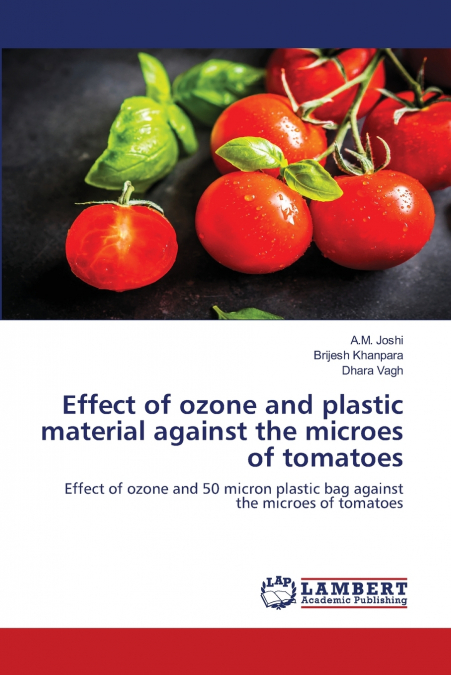
A.M. Joshi / A.MJoshi / Brijesh Khanpara / Dhara Vagh
 Donde los libros
Donde los libros
 Librería 7artes
Librería 7artes
 Librería Elías (Asturias)
Librería Elías (Asturias)
 Librería Kolima (Madrid)
Librería Kolima (Madrid)
 Librería Proteo (Málaga)
Librería Proteo (Málaga)
Tomato is very important crop but has short shelf life. They are the major dietary source of the antioxidant lycopene, which has been linked to many health benefits, and a great source of vitamins C, potassium, etc. They carry microbial flora while passing from the farm to the table. Microbial spoilage and contaminating pathogens pose a serious problem in food safety. The present work is carried out to compare & determine the total microbial load on fresh tomatoes and stored tomatoes, collected from farm level part of Vadal and vanthali with different treatments.For a better experimental analysis some factors were considered like ozone action, plastic packaging material viz. 50µ, 10 no. of holes in plastic packaging material, fixed low storage temperature i.e. 10ºC and microbial analysis at 3 days of time interval.Total viable counts on N-agar plates, yeast and mould count on potato dextrose agar plates, growth of E.coli & salmonella on EMB agar plate and SS agar plate respectively analysed for Tomatoes. Through this analysis of different treatment postharvest losses caused by microbes can be minimized.